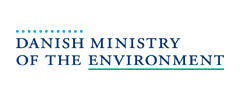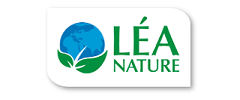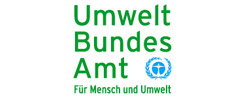Why do we need a Menstrual Hygiene Day?
Talk about menstruation, not only on May 28, Menstruation Hygiene Day
28.05.2014 |WICF

Huge majorities of women who live in the developing world do not have access to clean water, safe and private spaces for washing and cleaning, materials for absorbing menstrual blood, or facilities for proper and safe disposal of used menstrual hygiene materials are managing their periods in an unsafe and unhygienic manner, using old rags or other unhygienic and ineffective materials. These problems are exacerbated by limited access to and affordability of hygienic products, safe and private sanitation facilities, inconsistent supplies of water for personal hygiene, and inadequate disposal options.
Menstrual hygiene is fundamental to the dignity and wellbeing of women and girls, and an important part of basic hygiene, sanitation and reproductive health services.
However, menstruation is too often taboo, with many negative cultural attitudes associated with it, including the idea that menstruating women and girls are ‘contaminated’, ‘dirty’ and ‘impure’. Menstruating girls and women often feel ashamed and embarrassed about themselves, the silence because they would rather keep it a secret than talk about it. Facing health problems and socio-cultural taboos surrounding their periods, they become isolated from family, school, and their communities. Many girls dropout school soon after reaching puberty, due to lack of basic amenities for menstrual management with non-availability of menstruation materials, places for changing menstruation materials, running water in toilet and the absence of disposal facilities all impacting on girls education. Women and girls miss school and productive work days, thus falling behind their male counterparts. The suppression and silence around menstruation causes damage in women’s health and education and also to their economic prospects. And it is widespread. They have to stay outside but still do all the difficult works outside the house. Menstrual taboos and restrictions are still practiced in dozens of countries across Asia and Africa. Especially in the developing countries, it is still believed that menstruation is dirty, and a menstruating girl is a powerful, polluting thing. A thing to be feared and shunned by their communities for the duration of their menstrual period every month.
What means Menstrual Hygiene Management (MHM) in practice?
As Archana Patkar from WSSCC named it: Menstrual Hygiene Management (MHM) starts with the articulation, awareness, and information about menstruation and menstrual hygiene practices. Women and girls should be able to manage the period in safety, privacy and dignity by i) having access to and using hygienic materials together with ii) the provision adequate water and soap for washing and bathing and iii) assuring adequate collection and safe disposal of sanitary products - at home, schools/colleges, institutions, workplace and in public places.
Also in some countries, where WECF is implementing projects, menstruation is a big taboo. It came out of focus group discussion in rural Kyrgyzstan that girls are not informed about proper menstrual hygiene management and have difficulties to purchase hygienic materials.

Menstruation is a key indicator of health and vitality for women and girls. Managing this hygienically and with dignity is an integral path of good sanitation and hygiene.
In Tajikistan, ecosan toilets for women and girls have been implemented by WECF partner ASDPNau with funding of Natracare to ensure sanitation and hygiene in the school, improve the health, hygiene by implementing safe and sustainable sanitation. Guzal Nuralizoda pupil of 11 form says: “we are happy that we have a good toilet and we are not afraid to attend the school during the menstrual day.”
In the discussion around the Sustainable Development Goals on Water and Sanitation, WECF promotes a target on hygiene and calls for including MHM in the SDG:
- All women and girls have access to safe sanitary facilities and manage their menstrual hygiene (MHM) in a dignified fashion
- All women and girls have access to menstrual sanitary material, including
- privacy in sanitary facilities (lockable doors)
- waste bins for sanitary materials
- adequate washing facilities
- affordable sanitary materials
- WASH, including MHM, as part of education in schools to raise awareness
Related News
Calling for periods free from plastic & hazardous chemicals
Letter to Frédérique Ries, MEP, European Parliament on behalf of the #BreakFreeFromPlastics movement
04.09.2018
Crowdfunder for ‘Environmenstrual’ Campaign from the Women's Environmental Network
WECF partner, the UK-based Women’s Environmental Network (WEN), have recently launched a ‘Crowdfunder’ for their new ‘Environmenstrual Campaign’. The goal of which is to spark a menstrual revolution and increase demand for healthy, eco-friendly menstrual products.
27.05.2018
Towards improved - sustainable - sanitation for rural women, men and children
National technical standards on ecosan toilets and constructed wetlands initiated by WECF for the Republic of Moldova
31.03.2017
November 19, World Toilet Day
New ecosan toilet relief to girls attending Busi Parents School in Uganda
18.11.2016
WECF's Water and Sanitation Expert Claudia Wendland at IWA Conference
The 13th IWA Specialized Conference on Small Water and Wastewater Systems & 5th IWA Specialized Conference on Resources-Oriented Sanitation took place in ATHENS, GREECE on 14-16 September 2016
19.10.2016






































